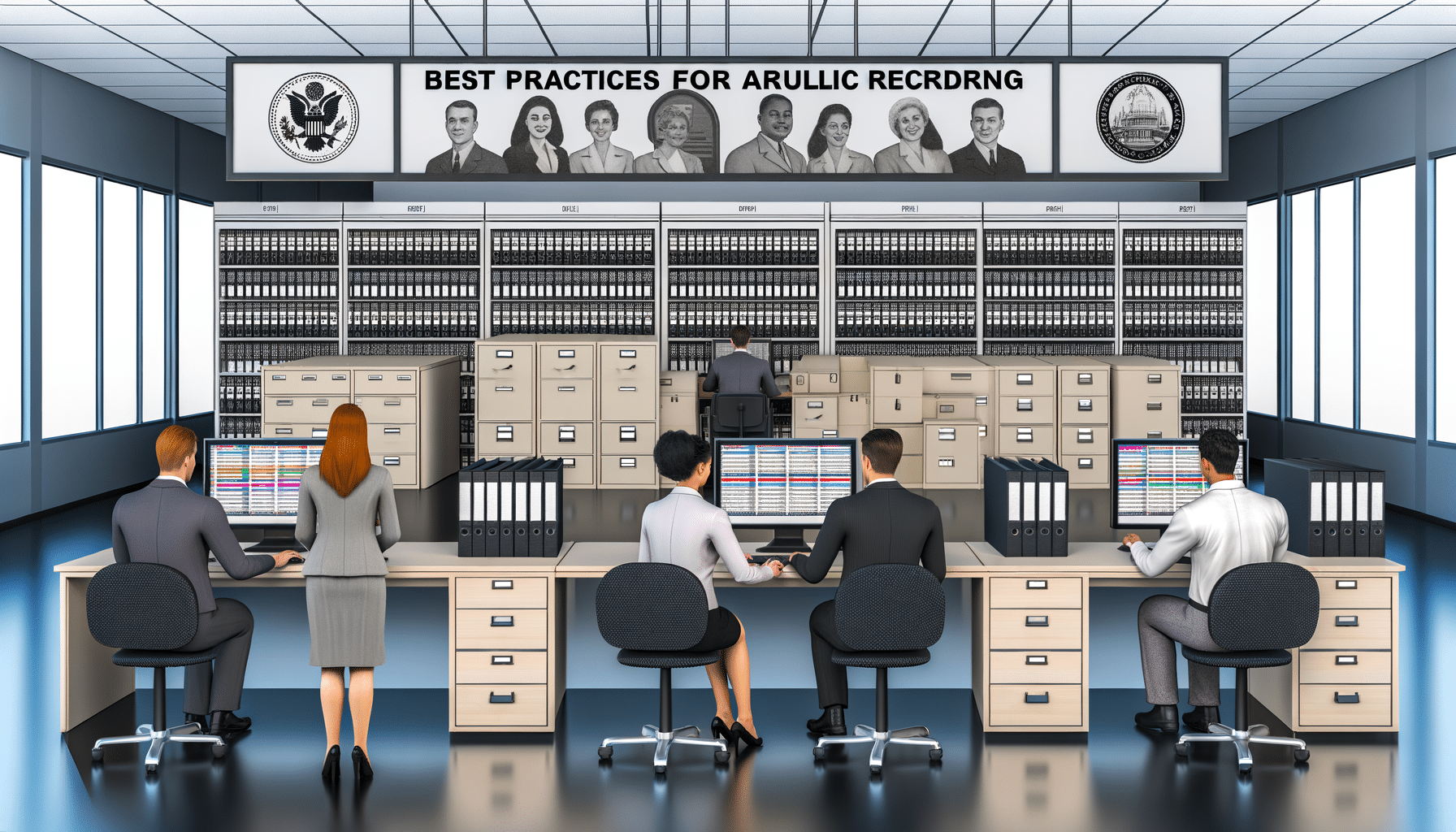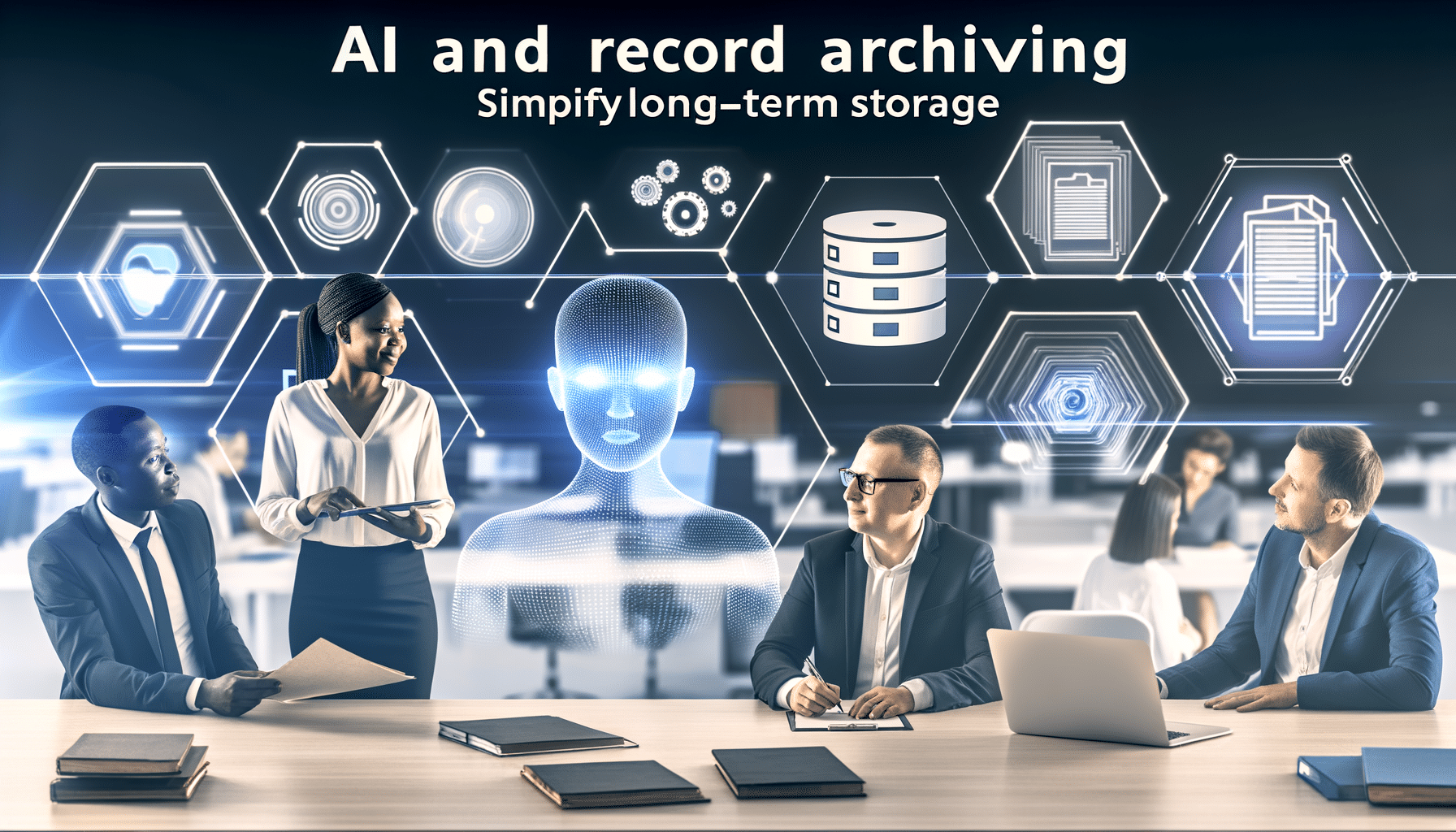- Archiving
- November 2, 2022
Smart Record Archiving: The Future of Document Management

Introduction
The advent of smart archiving technologies is not just a trend; it’s a transformative approach that has reshaped the future of document management. As businesses, government entities, and individuals struggle with the deluge of documentation in our digital age, the process of automated, secure, and efficient document handling offers solutions that were unimaginable in the past. In this world where data volumes grow exponentially, integrating smart archiving is not just about keeping up—it’s about staying ahead.
The Challenges of Traditional Document Management
Traditional document management often felt like navigating a labyrinthine library without the aid of a librarian. I’ve often encountered organizations burdened by their inability to access critical information promptly, tangled in layers of obsolete filing systems and manual record-keeping. These conventional methods invite a host of challenges:
- Time-Consuming: Manual categorization and retrieval of documents can consume valuable hours, leading to inefficiency.
- Error-Prone: Human error is inevitable, whether misfiling a document or failing to update records.
- Security Risks: Sensitive information stored physically or in traditional electronic formats is vulnerable to unauthorized access and breaches.
- Compliance Difficulties: Adhering to regulations such as GDPR or HIPAA without advanced tools is not just challenging—it’s risky.
Smart Archiving: A Game Changer
So, how does smart archiving change the game? It starts by revolutionizing document management through automation, intelligent categorization, and robust security protocols, making document access a seamless experience. Here are some standout benefits of this innovative approach:
- Automated Classification and Retrieval: Using AI-driven algorithms, smart archiving systems analyze and categorize documents automatically, vastly reducing retrieval times and improving accuracy. The ability to conduct natural language queries means that documents are effortlessly found by simply asking.
- Enhanced Security: Blockchain integration ensures that records are immutable and tamper-proof. With real-time activity tracking in secure data rooms, sensitive documents are safe from prying eyes.
- Efficient Compliance Management: Automatic compliance checks and workflows adhere to industry standards, harnessing the power of AI to simplify regulatory compliance processes.
- Backup and Recovery: With regular automated backups in place, recovery options are prompt, safeguarding business continuity even in the worst-case scenario.
- Policy Management: Automatic enforcement of data retention and deletion policies ensures that organizations remain compliant and efficient in their data handling.
The Strategic Advantage of Smart Archiving
Embracing smart archiving is not a mere upgrade—it’s a strategic decision. In my experience with RecordsKeeper.AI, I have seen firsthand how organizations gain a competitive edge by transforming their documentation into actionable insights with ease. Here’s how you can leverage smart archiving:
- Resource Optimization: With automated document management, valuable human resources can be diverted from mundane tasks to strategic initiatives that drive growth.
- Boosting Productivity: Shorter document retrieval times lead to increased productivity across teams, enabling faster decision-making and innovation.
- Cost Efficiency: Reducing administrative overhead and minimizing data-related risks translate to substantial cost savings in the long run.
A Glimpse into the Future
I envision a future where smart archiving isn’t just a best practice; it’s a foundational component in every operational strategy. As AI and blockchain technology continue to evolve, the possibilities for document management are boundless. The key to unlocking this potential lies in early adoption and strategic implementation.
Conclusion
The move towards smart archiving in document management signifies a leap into a future of efficiency, security, and compliance. RecordsKeeper.AI is poised at the forefront of this movement, offering tools and insights that the modern world demands. As you embrace these changes, let me reassure you: a well-managed document strategy will yield rewards that are as vast as they are immediate.
I invite you to learn more about how smart archiving can transform your document management processes. Follow my journey and insights as we continue to innovate in the ever-evolving landscape of record management. Together, let’s harness the future of document management with the power of smart archiving.
Toshendra Sharma is the visionary founder and CEO of RecordsKeeper.AI, spearheading the fusion of AI and blockchain to redefine enterprise record management. With a groundbreaking approach to solving complex business challenges, Toshendra combines deep expertise in blockchain and artificial intelligence with an acute understanding of enterprise compliance and security needs.
Related Posts

Best Practices for Archiving Public Records in Government Departments
Learn best practices for securely archiving public records.
- April 29, 2024

AI and Record Archiving: Simplifying Long-Term Storage
Understand how AI streamlines the archiving of records for long-term storage and easy retrieval.
- May 18, 2023
Archives
- January 2025
- December 2024
- November 2024
- October 2024
- September 2024
- August 2024
- July 2024
- June 2024
- May 2024
- April 2024
- March 2024
- February 2024
- January 2024
- December 2023
- November 2023
- October 2023
- September 2023
- August 2023
- July 2023
- June 2023
- May 2023
- April 2023
- March 2023
- February 2023
- January 2023
- December 2022
- November 2022
- October 2022
- September 2022
Want to get more content like this?
Signup to directly get this type of content to your inbox!!
Latest Post
Document Control for Equipment Maintenance
- January 20, 2025
Managing Records for Multiple Clients
- January 19, 2025
Handling Conference Documentation
- January 18, 2025
Setting Up Department Record Reviews
- January 17, 2025





